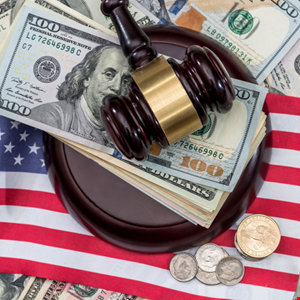Booz Allen Pays $377m to Settle Government Fraud Case

A leading US government contractor has agreed to pay a massive $377.5m to resolve allegations of procurement fraud – one of the biggest settlements of its kind ever reached.
Booz Allen Hamilton is a government and military contractor with a strong focus on cyber and digital intelligence. The multibillion-dollar revenue firm was whistleblower Edward Snowden’s employer when he worked at the NSA.
Read more on the False Claims Act: US Firm Pays $16m to Settle Healthcare Fraud Claims
The contracting giant was accused of charging costs to government contracts and subcontracts that should have been billed to its commercial and international contracts. The alleged impropriety occurred over the course of a decade, from 2011 to 2021.
The government claimed that Booz Allen attached indirect costs from its commercial and international contracts to government contracts they had no relationship with, or that these costs were allocated “in disproportionate amounts.”
The government also claimed Booz Allen failed to disclose how it accounted for the costs incurred by its commercial and international business.
The end result was US taxpayers indirectly reimbursing commercial activities that had no benefit to the US, according to the Department of Justice (DoJ).
“This settlement, which is one of the largest procurement fraud settlements in history, demonstrates that the United States will pursue even the largest companies and the most complex matters where taxpayer funds are alleged to have been pilfered,” said US attorney Matthew Graves for the District of Columbia.
“The Justice Department is committed to ferreting out all fraud, waste, and abuse in government programs – small or large, simple or complex.”
The whistleblower, a former Booz Allen employee, who blew the lid on the case is set to receive close to $70m as part of provisions under the False Claims Act.
The news comes just a week after a US healthcare technology vendor agreed to pay $31m to settle allegations it broke the False Claims Act and bribed customers to recommend its products.

